Mozambique, Namibia Presidents want to boost ‘economic diplomacy’
Frelimo president, Filipe Nyusi, appoints decentralization working group
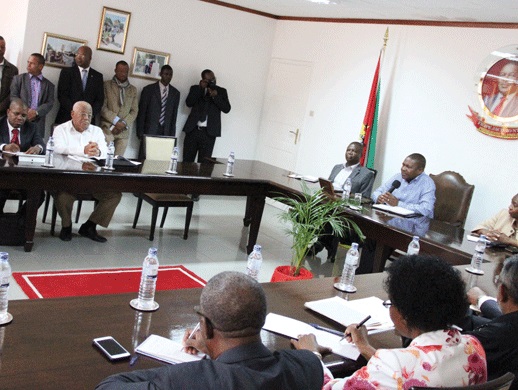
Notícias
Acting in his capacity as president of Frelimo, Filipe Jacinto Nyusi yesterday appointed a working group consisting of members of Frelimo’s politburo, central committee and other specialized public administration and local government staff, to conduct an in-depth study of decentralization and deconcentration aimed at increasing citizen’s participation.
Nyusi addressed the group’s first meeting in the presence of the media, explaining that the working group was mandated by Frelimo’s central committee at its April session to continue with the country’s decentralization process in line with its tradition and culture since the time of its foundation.
Nyusi said that Frelimo had progressed as a result of the merger of three nationalist movements, a clear demonstration of the ability of Mozambicans to be reconciled with each other, and had thereby managed to overturn Portuguese colonialism and proclaim national independence on June 25, 1975.
The president said that all Frelimo congresses had been characterized by democratic elections to their various bodies, and that it was Frelimo which again had accepted the inclusion of more political parties in Mozambique’s governance process and the introduction of a multiparty system.
According to Nyusi, although some parties appear only sporadically, the democratic process in the country is consolidated with the holding of elections, a democratic achievement highly acclaimed in the region and in the world at large.
With regards to decentralization, he said, municipalities had been institutionalized in a process that was bearing fruit. It was a process that had involved the participation the opposition, in this case the MDM, which indeed led some municipalities in the country.
“This political coexistence strongly signals that in Mozambique there is no problem of political exclusion. In fact, there is political party inclusion. This process has been consolidated and we have been observing that each year more municipalities fit the profile of what should be a municipality, a municipal city or municipal village,” the Frelimo said, adding that his party had been in the vanguard of the process.
According to Nyusi, the last significant step taken in the implementation of the democratic process in the country was the introduction of provincial assemblies, an action once again led by Frelimo. Members of these bodies were elected in a normal democratic process and sometimes the results did not coincide with those of general elections, in line with the wishes of the communities.
“People choose who they want without any pressure. There are provinces and cities where the majority is not held by Frelimo, but we participate in the elections. The important thing is that we are doing and will continue to do our job of continuing to lead the process of democratization, and, above all, to achieve better results,” he said.
Nyusi said the working group would evaluate what needed to be done for the decentralization process in the country to flourish and be sustainable, and indicate the steps to be taken to bring power closer to the people and persuade them to become more interventionist in pursuit of their welfare.
The group is headed by Political Committee member Alcinda de Abreu and includes Hermenegildo Gamito, Lucas Chomera, Aguiar Mazula and José Chichava, former minister of State Administration, José Óscar Monteiro, the first minister of former Internal Administration (State Administration), Teodato Hunguana, former Information Minister Ana Comoana, Matteus Katupha and Francisco Mucanheia, the last two members of the National Assembly.



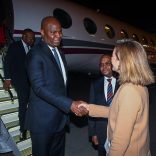
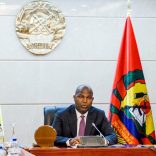

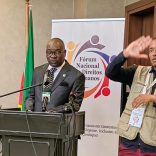
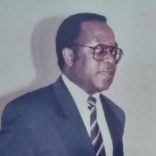





Leave a Reply
Be the First to Comment!
You must be logged in to post a comment.
You must be logged in to post a comment.